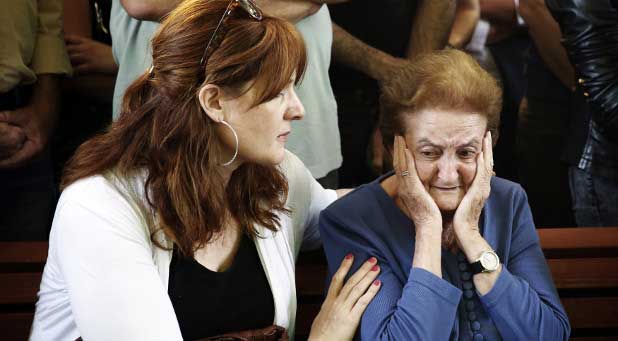Israel: Freedom Knows No Borders
The shooting attack at the Jewish museum in Brussels last weekend was another example of the anti-Semitic wave that has been washing over Europe in recent years. This begs the question: Is the State of Israel gradually becoming the only refuge, or should we say ghetto, of the Jewish people?
Does our 2,000-year-old desire “to be a free people in our land, the land of Zion and Jerusalem” contradict our individual desires to be free Jews anywhere we wish?
“Auto-Emancipation,” an early Zionist pamphlet written in German by Russian-Polish Jewish doctor and activist Leo Pinsker in 1882, warns of the xenophobia toward Jews in Europe. Pinsker wrote that the Jews were a “dead but still living nation” or a “ghostlike apparition” with no homeland or independence, and that was why they appeared strange and foreign.
According to Pinsker, this was the root cause of what he called the “Judeophobia” that the Europeans had developed, leading to displays of anti-Semitism. Pinsker’s proposed remedy was “auto-emancipation,” the establishment of a Jewish state in which every citizen would receive the respect he or she deserved.
More than a century after Pinsker wrote his essay, Mira and Emanuel Riva, both Israeli citizens, were murdered in Brussels. A French woman was also killed in the attack, and a fourth man was critically wounded. The Rivas were tourists like any other tourists.
Tragically, the victims’ Israeli citizenship served to divert the focus away from the growing trend of anti-Semitism in Europe, and instead enabled the event to be attributed to “anti-Israelism”—something that is actually politically correct to express in Europe.
“We have no complaints when it comes to the treatment we receive from the national institutions,” says Raphael Werner, the president of the Flemish Forum of Jewish Organizations. Werner, who traveled to Israel along with the heads of the Belgian Jewish community to take part in the Rivas’ funeral, talks about a comfortable, supportive relationship with the Belgian authorities. “But … ,” he adds.
The “but” refers to the general atmosphere in the Belgian press, and to several pro-Palestinian remarks made by Belgian ministers. In this atmosphere, Syrian President Bashar Assad massacres his people and no one mentions it, but when the IDF clashes with Palestinians it is all over the newspapers.
In this atmosphere, activists who happen to be Jewish approach the Belgian education minister to discuss a specific problem in education and he asks them over and over about the Israeli-Palestinian conflict. It is not trendy to be anti-Semitic, but being anti-Israel is very much in vogue these days.
Julien Klener, the president of the official Jewish umbrella organization Consistoire Central Israelite de Belgique, is concerned.
“When I read the papers, I see things that were not there three or four decades ago,” he says. Klener was born during World War II. He hid from the Nazis with his family, and after the war, he lived in a town where his family were the only Jews.
In the decades that followed, he heard few remarks about Jews. During that time everyone knew what had happened and refrained from talking ill of the Jews. Now, Klener is beginning to see those familiar terms in the newspapers again.
“The anti-Zionistsuse the same terminology once used against the Jews,” he says.
Those who can recall the fate of the ghettos know. The State of Israel must wage a war to the death for every Jew’s right to live anywhere without fear.
For the original article, visit israelhayom.com.













































